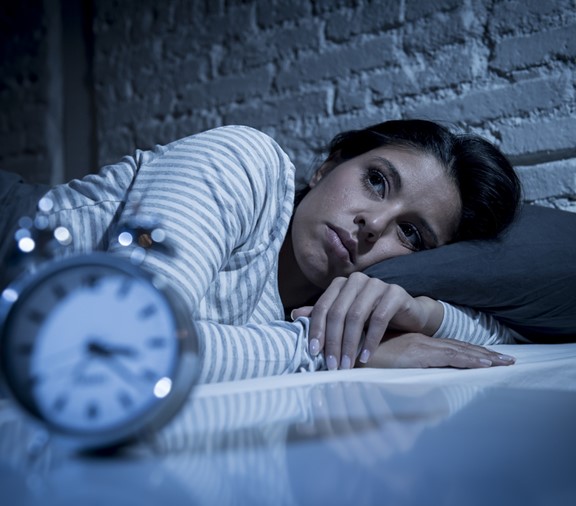
Do mental health issues cause sleep problems—or do sleep issues cause mental health problems?
The answer to both can be “yes.”
Most people feel their best—in both body and mind—after a good night’s sleep. You might find this especially true if you or your child are diagnosed with:
- depression
- Seasonal Affective Disorder (SAD)
- anxiety
- bipolar disorder
- ADHD
- autism spectrum disorder
People with these mental illnesses and disorders can have a hard time falling or staying asleep. They also might sleep many more hours than other people.
When you don’t get enough rest for many nights or weeks, you might need extra support for your mental health.
The good news is you can take steps to improve the quality of your sleep. Small changes over weeks and months can add up to big improvements in your sleep, mood, and overall feeling of wellness.
Depression and sleep
According to the Sleep Foundation, if you have depression, you will probably have sleep issues.
You might have “insomnia,” which means sleeping too little. About three out of four people with depression will have insomnia.
“Hypersomnia,” or sleeping too much, is another common problem for people with depression. If your depression lasts several weeks or months, you might have trouble with both sleeping too much some days and not enough on other days.
How Seasonal Affective Disorder (SAD) affects sleep
When the air grows chilly and there are fewer hours of daylight, some people develop Seasonal Affective Disorder (SAD).
About one of every 20 people will have SAD sometimes in their lives. Problems with sleep are a common part of Seasonal Affective Disorder.
People with SAD also might:
- feel depressed or agitated most of the day
- sometimes feel hopeless
- have trouble concentrating
- lose interest in their favorite activities
- feel tired or weak
Sometimes, Seasonal Affective Disorder lasts even after winter months are over.
One way to help yourself feel better when you have SAD is to exercise. Try to get at least 20 minutes of activity each day. Take a walk around the neighborhood. Walk the steps in a tall building. Dance to your favorite music at home.
Every little bit helps.
Anxiety disorders can lead to sleep problems
Did you know there are several types of anxiety disorders?
Anxiety can affect people in many different ways.
You might have trouble sleeping if you have:
- generalized anxiety disorder
- posttraumatic stress disorder
- panic disorder
Some people with anxiety have intense nightmares or panic attacks during sleep. Then, as they lose sleep night after night, they have more anxiety symptoms during the day.
If you think you might have an anxiety disorder, talk to your doctor. There are many treatments to help you feel better—and sleep better.
Bipolar disorder leads to too little and too much sleep
Bipolar disorder is sometimes called “manic depression.” It causes serious mood swings.
People with this mental illness can have very high energy and be “up” and happy for days or weeks. Then, they may feel extremely “down” and depressed for days or weeks.
If you have bipolar disorder, you may have these sleep problems:
- a hard time falling or staying asleep
- sleeping too much, especially when you are depressed
- feeling very energetic even with very little sleep
- strange or intense dreams
- sleeping and waking at odd times of day and night
How does ADHD affect sleep?
Have you or your child been diagnosed with Attention Deficit Hyperactivity Disorder, also called ADHD or ADD? If so, a good bedtime routine will be important for your family.
Most people with ADHD have poor sleep, according to CHADD.
When adults with ADD are overly tired, they can have more problems than usual staying focused at home or at work.
Young children with ADHD can have a very hard time settling down in the evening. When they don’t get enough sleep, they can become extremely hyperactive and impulsive. Sometimes they are aggressive.
If an adult or child has ADD combined with another mental condition, such as anxiety or depression, that will also make it hard to get the rest they need.
Sleep challenges with autism spectrum disorder
According to Autism Speaks, most children and many adults with autism have problems with sleep.
They may have a hard time falling and staying asleep, or wake up too early in the morning.
These sleep issues are more likely for children with autism who have repetitive behaviors, anxiety, or sensory problems. They can have a hard time paying attention and feel restless and angry.
Take the first step to better sleep. Carelon Behavioral Health can help.
Carelon Behavioral Health is here to help you with behavioral health treatment for depression, anxiety, marriage and family problems, or alcohol and drug abuse.
You do not need approval for individual, family, or group therapy. Also, you do not need a referral from your regular doctor.
English/Spanish interpreter services available 24 hours a day, 7 days a week.
- HEALTHfirst STAR Medicaid: 1-800-945-4644
- KIDSfirst CHIP: 1-800-945-4644
- KIDSfirst CHIP Perinate: 1-888-814-2352



